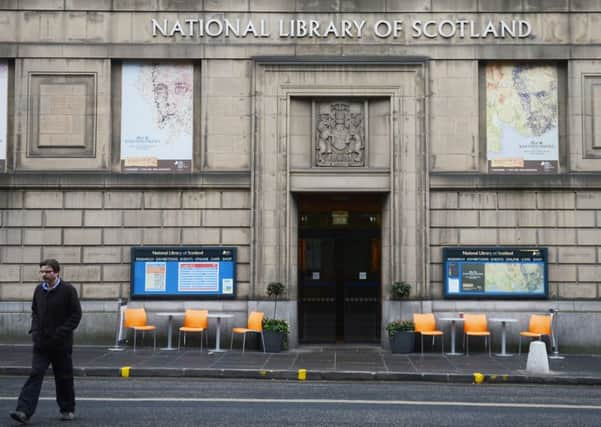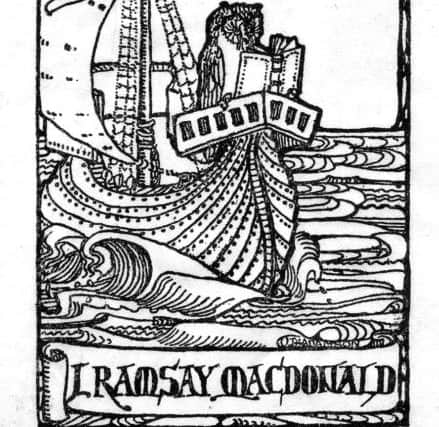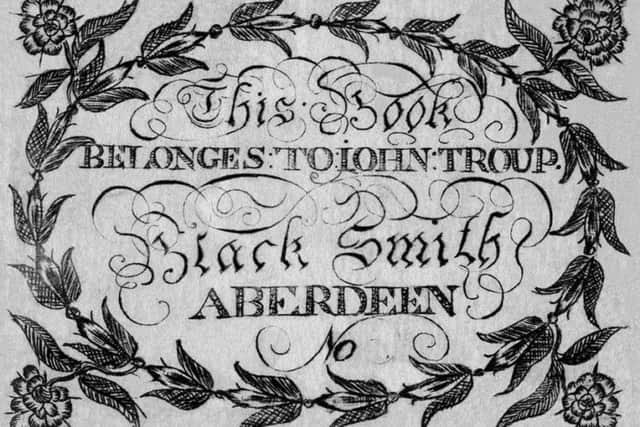National Library of Scotland fees '˜hitting small publishers'


Anthony Pincott spokesman for The Bookplate Journal, which has 275 subscribers and comes out twice a year, says the NLS’s decision to charge £50, plus VAT (£60 in total) for re-use of images, is exorbitant and claims small publishers and authors are “taking the financial hit”.
The NLS’s fee for commercial use applies whether the request comes from a small niche publication such as The Bookplate Journal or from a multi-national such as Google. The money raised helps with the running costs of the NLS.
Advertisement
Hide AdAdvertisement
Hide AdThe row has been dubbed the “battle of the bookplates” with the journal’s supporters bombarding the NLS with letters and emails of complaint.


Bookplates, small decorative labels usually with the words “ex-libris” and pasted near the front of a book to denote ownership have a long history with the earliest examples dating from the 15th century.
Some are regarded as miniature works of art and were created by leading artists, engravers and illustrators such as Jessie M. King (1875-1949), William Hogarth and members of the Bloomsbury group, with highly-prized specimens selling for thousands of pounds at auction houses across the world.
Also highly-sought after are those from the libraries of famous people such as Bismark, Samuel Pepys and George Washington.
Art thieves have been known to take a scalpel to cut them out of books held in collections. Even those found in second-hand bookshops can be worth more than the volume they are in.


Pincott said: “This is a scandal because of the way the library is choosing to interpret the legislation. But it is a much wider issue affecting publications and authors worldwide.
Advertisement
Hide AdAdvertisement
Hide Ad“The NLS declares that as a library it is allowed by the Regulations to charge fees that are not at marginal cost but at a full cost, including an element of profit, and in this way it has arrived at an interpretation very different from what has been decided by similar institutions.
“In my view the public task of the NLS does not include the stifling of publications through the imposition of grossly excessive re-use charges, nor the deliberate setting-up of sizeable barriers to access to material bequeathed free of charge to the national heritage.”


He says the charges are preventing the journal publishing an article due out in April.
Pincott, who says there are inconsistences in how much public institutions are charging, is campaigning against how NLS implements the Public Sector Information Regulations which came into force last year.
He has written to Dr John Scally, national librarian and chief executive of the NLS, demanding a re-think on fees.
A spokesman for the NLS said fees reflected the work incurred in arranging for the images to be used but that it had now implemented a review which should be complete by April.


“The National Library of Scotland is committed to making the knowledge held within its collections as widely available as possible and provides a range of content free to use on its website and on sites such as Flickr and Wikimedia Commons.
Advertisement
Hide AdAdvertisement
Hide Ad“It is obliged through regulations introduced last year by the UK Government (the Re-use of Public Sector Information Regulations 2015) to standardise how it makes material available for re-use.
“The regulations apply to all public sector information and are based on principles of fairness, transparency, non discrimination and consistency of application.
“ Fees have been set at a level that allows the Library to recover a portion of its costs for the work involved in arranging re-use.
“It is listening to views from users on how this new system is being applied and has a process in place for reviewing its implementation of the regulations, which is due to conclude by April 2016.”